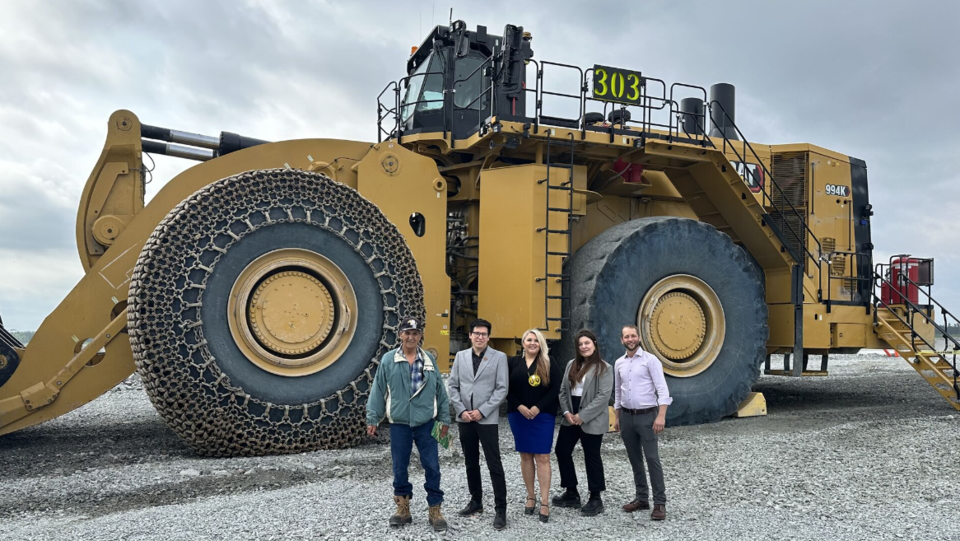Since first being elected to Mattagami First Nation council in 2003, Jennifer Constant has never been shy about holding mining companies to account on their stated ESG principles of doing no harm.
Before consultation with First Nations became standard industry practice, the now-chief (Ogimaa Kwe) of Mattagami wouldn’t hesitate to remind junior mining companies probing for gold and minerals within their territorial lands to “come have a conversation” on their exploration plans.
This week, Constant will be celebrated as an Indigenous trailblazer, as one of the guests of honour, at the inaugural Women in Mining Sudbury awards gala, Nov. 21.
Constant is a well-known fixture in the community of 1,000 on and off-reserve members, located halfway between Timmins and Sudbury.
Always an enthusiastic volunteer and community booster, Constant has worked closely with IAMGOLD since its acquisition of the Côté Gold Project in 2012.
The mine, which entered commercial production in August, is situated on Treaty 9 territory within the traditional lands of Mattagami and Flying Post First Nation.
Receiving such recognition leaves her excited, honoured and humbled.
Yet she views the accolade as merely being part of her leadership and environmental stewardship role as an Indigenous person to ensure development is done in the sustainable way that aligns with Mattagami’s values.
As one of the community negotiators, Constant was a stalwart figure through the environmental assessment and permitting process with IAMGOLD, into the all-important Impact Benefit Agreement, the construction phase, and now the mining operation.
“We jokingly say, we’re in a marriage, and to have a good marriage you have to maintain it,” said Constant. “There are certain parameters to how to maintain a good marriage. We laugh about it, but really that’s what it is."
The extractive industries have been part of Mattagami’s members' lives for generations. Mining today is a catalyst for growth. It brings a host of economic spinoffs and benefits, but Constant is also mindful of her community’s history.
It doesn’t take much digging to unearth some of the “not so pleasant sides to having industry right your backyard.” In decades past, there were negative impacts on the environment, and Indigenous people were excluded from participation, much less had a say in the activity.
“Mining has not always been kind in many ways,” said Constant.
Family fortunes and business legacies have been built, cities have grown and prospered, all based on the mineral wealth extracted from Indigenous territories.
From Mattagami’s perspective, for someone to prosper, someone else had to lose. Her community was displaced from the Timmins area, due to industrial development, to resettle in the place they live now near Gogama.
There’s an old adage, she said, a misunderstanding, that First Nations want everything for nothing, when it comes to land and resource projects.
“We’ve sacrificed a lot. If you really step back and look at a lot of systematic and social issues that have been imposed on Indigenous people, a lot of it was dispossession of our territory, our land, and the control, full participation and benefit of that, and that’s shameful.”
As Mattagami’s first university-educated leader, her guiding principle in negotiations and discussions with IAMGOLD is to mitigate any potential harms, while setting the up community — especially its youth population — for success through participation and in an equitable manner as originally set out in the Treaty relationship.
As a councillor, she took charge and helped develop a socioeconomic management and monitoring plan that created the framework for how Mattagami and IAMGOLD would engage on a range of topics and issues over the mine’s life.
During the early phases of the Côté project’s environmental assessment, Constant hosted a forum that brought women of all ages from the community to meet with female representatives of IAMGOLD.
The industry’s track record of employing women — especially Indigenous women — hasn’t always been stellar. Constant wanted to create a venue where women’s voices could be heard. She staunchly believes there are positive aspects to having women as part of the mining workforce.
This engagement led to two water ceremonies at the mine site.
To manage the various mine-related benefit and contracting service agreements, Constant briefly served as president of Mattagami Aki G.P., a band-owned entity created in 2018.
With two limited partnership companies engaged in the mine’s activity, Aki is growing in stature to begin diversifying into other areas to add more reserve land, explore food sovereignty, and engage in other community projects that promote people and build wealth and well-being in the community.
Asked about the current state of the marriage with IAMGOLD, Constant pauses and laughs.
“It’s good. It’s allowed us to put into place and into practice some of the initiatives that we wanted to put into play from a First Nation perspective.”
She draws inspiration from the successes enjoyed by Western Canadian First Nations through their involvement and equity stakes in the energy and natural resources sectors.
“We wanted meaningful involvement in the development in our territory. We do have other negotiations and agreements in our territory, but this one (with IAMGOLD) has been one that’s allowed us to really build upon those desires to build wealth, and do it in a sustainable and socially responsible way.
“That’s what we intended when we signed treaties.”



